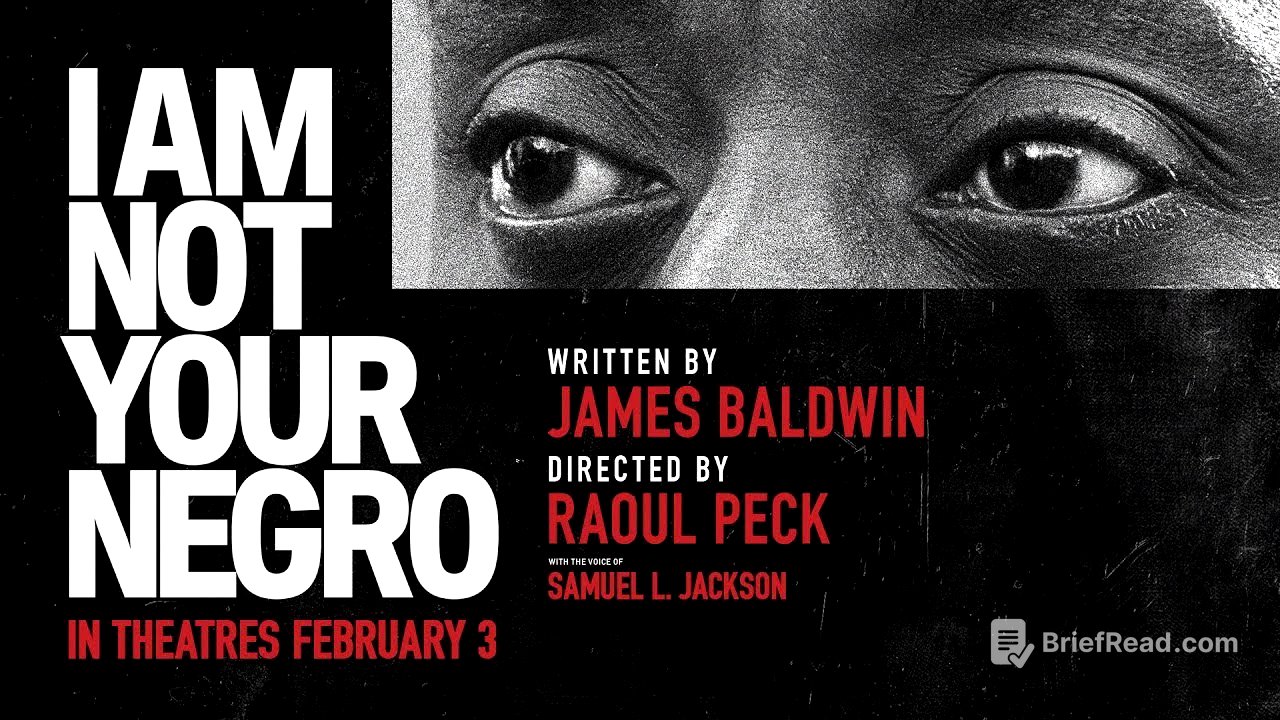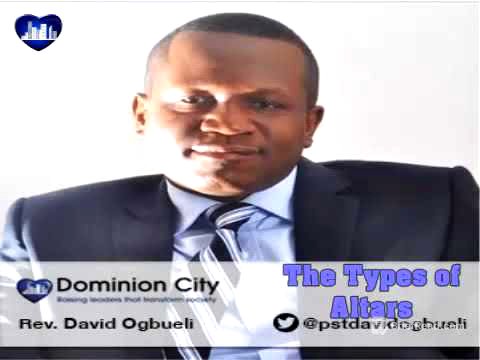TLDR;
This video features James Baldwin reflecting on race, identity, and American history. He discusses the complexities of being Black in America, the illusion of progress, and the moral compromises inherent in the nation's history. Baldwin shares personal anecdotes, literary analysis, and social commentary to challenge viewers to confront uncomfortable truths about race and justice.
- The illusion of progress for Black Americans and the persistent reality of racial injustice.
- The importance of confronting history and understanding its impact on the present.
- The role of the artist as a witness and the necessity of challenging societal lies.
Introduction: Baldwin's Reflections on Race and American Identity [0:42]
Baldwin addresses the common remark about Black people's supposed lack of optimism despite perceived improvements in their status. He questions the value of superficial progress, such as Black mayors or representation in media, when the underlying issues of racism persist. Baldwin argues that the real question is not what will happen to Black people, but what will happen to the country as a whole if it continues to use discriminatory language and perpetuate inequality.
Letter to Jay: A Journey into the Lives of Medgar, Malcolm, and Martin [3:03]
In a letter dated June 30, 1979, Baldwin outlines a book proposal focusing on the lives and deaths of Medgar Evers, Malcolm X, and Martin Luther King Jr. He describes this project as a journey into the lives of these three men, exploring their differences and how their paths intersected. Baldwin emphasises the importance of understanding their struggles and the sacrifices they made, viewing their stories as a means of instructing and awakening the people they loved and who ultimately betrayed them.
Dorothy Counts and the Shame of American Racism [7:00]
Baldwin recounts seeing a photograph of 15-year-old Dorothy Counts being reviled and spat upon as she integrated a school in Charlotte, North Carolina. He expresses the fury, hatred, pity, and shame he felt, lamenting the absence of support for her. This event prompted his decision to return to America, feeling compelled to confront the racial issues plaguing the country rather than remaining in Paris discussing them from afar.
Homecoming and the Longing for Connection [9:04]
Baldwin reflects on his return to America after living in Paris. While he didn't miss American consumerist symbols, he deeply missed his family, the culture of Harlem, and the unique style and spirit of Black people. He longed for the connections to the life that had shaped and sustained him, acknowledging that despite feeling like a stranger, he was finally home.
Early Influences: Movies, Books, and Bill Miller [10:55]
Baldwin recalls early experiences with movies and the impact of a white schoolteacher named Bill Miller. He remembers being fascinated by Joan Crawford and encountering a Black woman who resembled her. Bill Miller introduced him to books, plays, and films, broadening his understanding of the world and different cultures. Baldwin credits Miller with preventing him from developing a hatred for white people, despite the injustices he witnessed.
The Absence of Black Fathers in Cinema and the Terror of "They Won't Forget" [13:41]
Baldwin discusses the lack of representation of Black fathers in American cinema, contrasting this with stereotypical portrayals he loathed. He recalls a film featuring a Black janitor, played by Clinton Rosemond, who resembled his father. The janitor's terror in the face of a false accusation resonated deeply with Baldwin, highlighting the ever-present threat of racial injustice.
Heroes, Enemies, and the Destruction of Reality [15:43]
Baldwin reflects on his childhood perception of heroes as white figures who took vengeance into their own hands. He understood that his countrymen were his enemy, and he critiques the stories designed to reassure people that no crime was committed. He argues that oppression destroys the subjugated person's sense of reality, leading to a profound sense of alienation and displacement.
Returning to the South and Witnessing History [17:56]
Baldwin describes his plans to return to the South, to revisit key locations and reconnect with figures from the Civil Rights Movement, such as Myrlie Evers and Coretta Scott King. He sees himself as a witness to the lives and deaths of Medgar, Malcolm, and Martin, and he feels a responsibility to document their stories. He recalls his encounters with Malcolm X and Medgar Evers, highlighting the complexities of their characters and the impact they had on him.
The Thin Line Between Witness and Actor [21:24]
Baldwin reflects on the distinction between being a witness and an active participant in the Civil Rights Movement. He explains why he never fully aligned himself with any particular group, such as the Black Muslims or the NAACP, due to ideological differences or personal experiences. He acknowledges the sacrifices and responsibilities of those on the front lines, while recognising his own role as a writer and storyteller.
Birmingham and the Moral State of America [25:18]
Baldwin discusses the shock and disbelief of white people regarding the events in Birmingham, Alabama, while Black people were not surprised. He argues that there is no moral distinction between Birmingham and other parts of the country, highlighting the pervasive nature of racism. He critiques the notion of non-violent resistance, as articulated by Martin Luther King Jr., suggesting that it can be seen as playing into the hands of oppressors.
Malcolm, Martin, and Medgar: Divergent Paths Converging [29:18]
Baldwin observes that Malcolm X and Martin Luther King Jr., despite their initially divergent backgrounds and positions, were driven closer together over time. He suggests that Martin eventually picked up Malcolm's burden and articulated the vision that Malcolm had begun to see. Medgar Evers, who was murdered first, hoped for this convergence. Baldwin reflects on the fact that all three men died young, never reaching the age of 40.
Malcolm X: Corroborating Reality and Terrifying the Majority [30:36]
Baldwin describes Malcolm X as a messenger who articulated the suffering of Black people and corroborated their reality, something long denied in America. He expresses terror at the moral inability and death of the heart happening in the country, where people have deluded themselves for so long that they no longer recognise the humanity of Black people.
Apathy, Ignorance, and the Price of Segregation [33:42]
Baldwin critiques the apathy and ignorance of white Americans, which he sees as the price of segregation. He recounts an anecdote about Bobby Kennedy's surprise at the living conditions of Black families, highlighting the lack of understanding and empathy. He suggests that both he and Malcolm X were trapped in the same situation, despite their different approaches.
Bobby Kennedy Meeting and Lorraine Hansberry's Moral Commitment [35:22]
Baldwin recounts a meeting with Bobby Kennedy, where he and Lorraine Hansberry urged Kennedy to have his brother, the President, personally escort a Black girl to school in the South. Kennedy dismissed this as a meaningless moral gesture, but Hansberry insisted on the need for a moral commitment. She expressed her worry about the state of a civilisation that produced the photograph of white cops standing on a Black woman's neck in Birmingham.
The Death of Medgar Evers and the Descent of Blue Skies [37:49]
Baldwin recalls the last time he saw Medgar Evers, who stopped by his house to get books autographed before heading to the airport. Months later, while in Puerto Rico, Baldwin heard the news of Evers' assassination. He describes the shock and grief he felt, remembering Evers' face, his weariness, and the stories he had shared about the horrors of racism.
Freedom in Battle and the Romanticisation of White Revolutionaries [40:48]
Baldwin reflects on the limited freedom available to Black people in America, finding it only in battle and never in rest. He contrasts this with the romanticisation of white revolutionaries, arguing that a Black man who sees the world like John Wayne would be considered a maniac. He asserts that America does not know what to do with its Black population and that the myth of the docile negro is false.
The Corpses of Brothers and Sisters and the Attack on the Power Structure [42:22]
Baldwin describes his school as the streets of New York City, where he learned what it meant to be Black in America. He speaks of watching the corpses of his brothers and sisters pile up around him, victims of a system that denies them their humanity. He argues that when Black people stand up and assert their right to exist, they are attacking the entire power structure of the Western world.
Beyond Racial Problems: A Question of Responsibility [43:30]
Baldwin urges a shift in focus from racial problems to the fundamental issue of personal responsibility. He argues that the core issue is whether people are willing to confront their lives and take responsibility for changing them. He sees himself as a child of the Western house, albeit the most despised, and believes that America's inability to face this fact is at the heart of its problems.
Emotional Poverty and the Terror of Human Life [45:43]
Baldwin observes an emotional poverty in America, a terror of human life and touch that prevents genuine connection. He argues that this failure of private life has devastating effects on public conduct and Black-white relations. He suggests that Americans invented the "negro problem" to safeguard their purity, but this has turned them into criminals and monsters.
The Nature of Hatred: Rage vs. Terror [48:12]
Baldwin distinguishes between the hatred of Black people and the hatred of white people. He argues that the root of Black hatred is rage, a desire to be free from white interference. In contrast, the root of white hatred is terror, a bottomless and nameless fear focused on a dread figure that exists only in their minds.
The Black Artist and Infantile Sexuality [50:08]
Baldwin critiques the portrayal of Black men in popular culture as lacking sexuality, despite the myths surrounding Black sexuality. He argues that Black artists are up against the infantile, furtive sexuality of the country, where even sex symbols like Harry Belafonte are not used in the same way as white Hollywood he-men. He notes that Black people disliked the film "Guess Who's Coming to Dinner" because they felt Sidney Poitier was being used against them.
The Blind Girl and the Sinister Fact of American Racism [52:47]
Baldwin shares a personal anecdote about a blind girl he knew in the village, highlighting the dangers of being seen with a Black man in America. He recounts how she was safer walking alone than with him, a brutal and humiliating fact that destroyed their relationship. He argues that Americans have yet to realise how sinister this fact is and what it says about them.
The Negro Market and the Limits of Reality [54:16]
Baldwin critiques the commercialisation of Black culture, pointing out the irony of marketing to a community that is simultaneously oppressed. He argues that people prefer fantasy to a truthful recreation of their experience, and that they have enough reality to bear simply by getting through their lives. He recounts Robert Kennedy's statement about a potential Black president in 40 years, highlighting the laughter, bitterness, and scorn with which it was greeted in Harlem.
Cheap Labour and the American Dream [57:31]
Baldwin asserts that the American economy, particularly in the South, could not have developed without the cheap labour provided by Black people. He argues that it is a terrible thing for an entire people to believe that one-ninth of its population is beneath them. He believes that until Americans accept the fact that their history is intertwined and that Black people are integral to the country's identity, there is little hope for the American dream.
The March on Washington and the Responsibility of the White Community [1:00:37]
Baldwin discusses the March on Washington and the responsibility of the white community to address racial injustice. He argues that the interpretation of whether the movement will end successfully lies heavily with white people, profiteers, vested interests, and the great middle stream who have refused to commit themselves or even acknowledge the issues.
Immaturity as a Virtue and the Death of Malcolm X [1:02:58]
Baldwin critiques the American tendency to value immaturity, citing John Wayne as an example. He recounts the night he learned of Malcolm X's assassination while in London, describing the shock and fear he felt.
Violence as Part of American Culture and the Hypocrisy of Judgement [1:04:52]
Baldwin argues that violence is an integral part of American culture. He points out the hypocrisy in how Black people are judged for advocating for their liberation, while white people are applauded for doing the same. He criticises the selective application of freedom and justice based on race.
The Irresponsibility of a Fat, Sleek, and Safe Nation [1:08:20]
Baldwin laments the irresponsibility of a nation that is fat, sleek, safe, and happy, while many others cannot imagine such a life. He critiques the entertainment industry for perpetuating a self-serving fantasy of American life, comparing it to the use of narcotics. He expresses concern about the American sense of reality, trapped between what it would like to be and what it actually is.
The Importance of Individualism and the Social Terror of Racism [1:10:46]
Baldwin engages in a discussion with Professor Paul Weiss, who argues for the importance of individualism over group identity. Baldwin counters that the social terror of racism is a real and present danger, visible in the faces of authority figures. He asserts that he cannot afford to trust white Christians or the Christian church, given the segregation and hypocrisy he observes.
The Lie of Western Humanism and the Formula for National Decline [1:14:23]
Baldwin argues that Western nations have been caught in a lie of pretended humanism, which undermines their moral authority. He quotes Dostoevsky's "The Idiot," cautioning against wagons that bring bread to humanity while excluding a part of humanity from enjoying it. He asserts that America's prosperity has come at the cost of millions of lives and that the beneficiaries are unable to understand the price paid by their victims.
The Deaths of Malcolm and Martin and the Futility of Tears [1:16:55]
Baldwin recounts the day he learned of Martin Luther King Jr.'s assassination, recalling the news of Malcolm X's death years earlier. He describes his reaction as helpless rage rather than sorrow, and he expresses his belief that any change will be bloody and hard-won.
The Story of the Negro is the Story of America [1:20:16]
Baldwin asserts that the story of the Negro in America is the story of America, and it is not a pretty one. He acknowledges his weariness but maintains his belief that something unprecedented can be achieved in the country. He emphasises the need for passion over numbers and laments the fact that most people who claim to care about change are primarily concerned with their own safety and profits.
The American Way of Life and the Lack of Passionate Conviction [1:21:46]
Baldwin argues that the American way of life has failed to make people happier or better. He critiques the lack of passionate conviction and personal authority in the country, suggesting that it is only unwillingly and sporadically the home of the brave. He expresses amazement that the Black population has not succumbed to raging paranoia, given the social realities they face.
Bitterness and the Two Levels of American Experience [1:23:03]
Baldwin addresses the accusation of being bitter, acknowledging that he would have good reasons to be. He points to the American blindness or cowardice that allows people to pretend that life presents no reasons for bitterness. He contrasts the grotesque appeals to innocence embodied by figures like Gary Cooper and Doris Day with the subterranean, indispensable, and denied experience of Black people.
Facing History and the Criminality of Pretence [1:25:52]
Baldwin asserts that it is impossible to live in American ghettos without becoming something monstrous. He highlights the advantage that Black people have in understanding white people, as they have always had to observe them. He argues that nothing can be changed until it is faced and that history is not the past but the present. He concludes that pretending otherwise makes people criminals.
The Future of the Negro and the Question White People Must Ask [1:28:05]
Baldwin declares that he cannot be a pessimist because he is alive. He believes that the future of Black people in America is as bright or as dark as the future of the country. He argues that white people must ask themselves why it was necessary to invent the "nigger" in the first place, as it is a reflection of their own needs and fears. He concludes that the future of the country depends on whether it is able to ask and answer that question.









